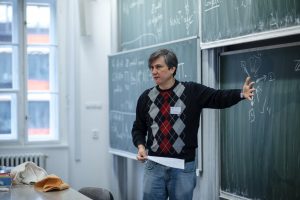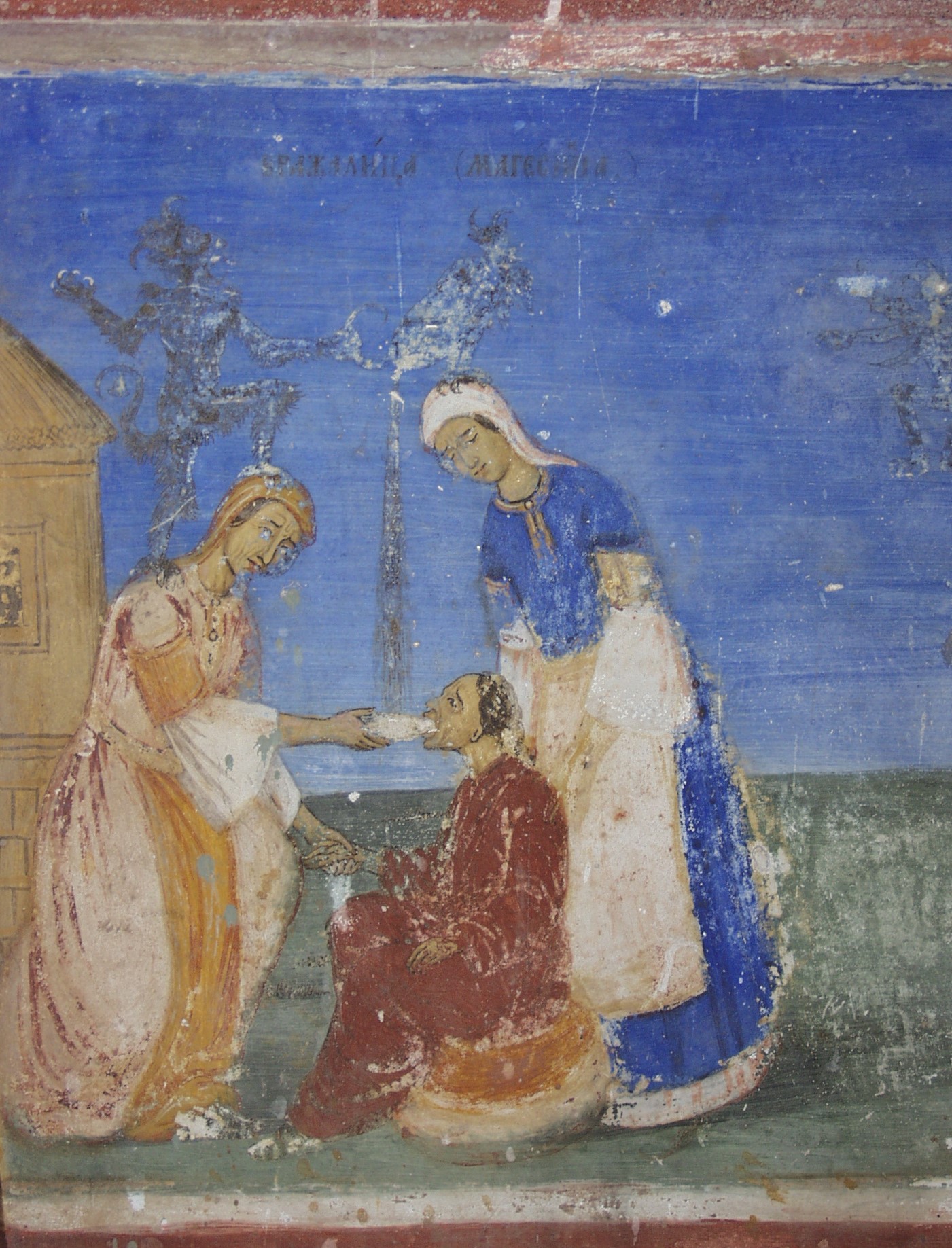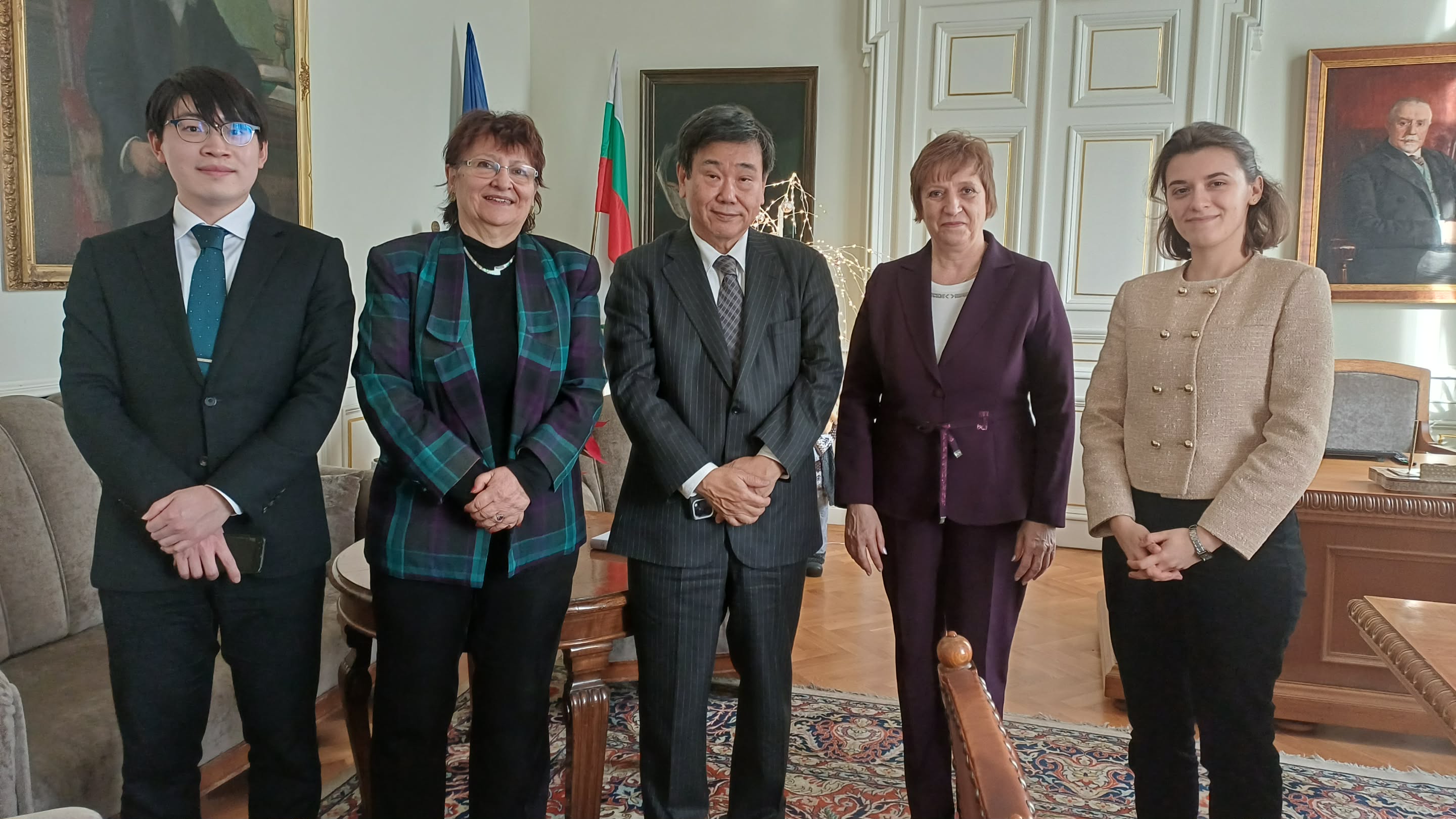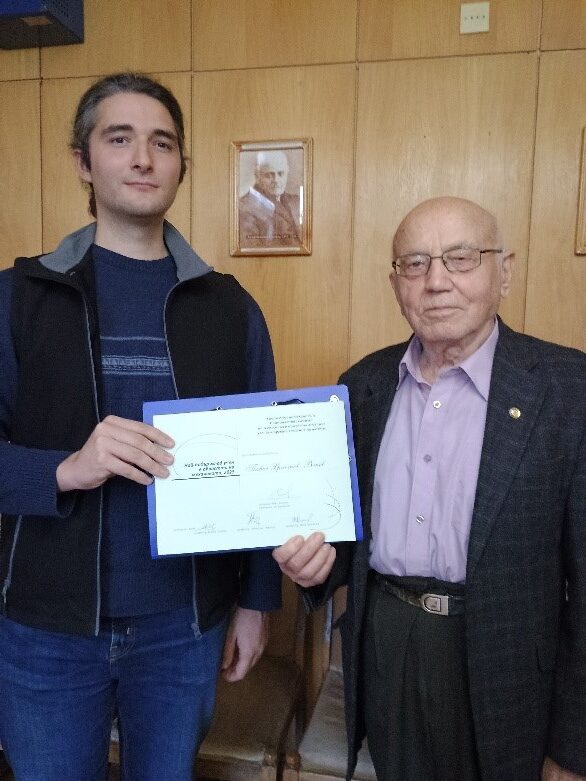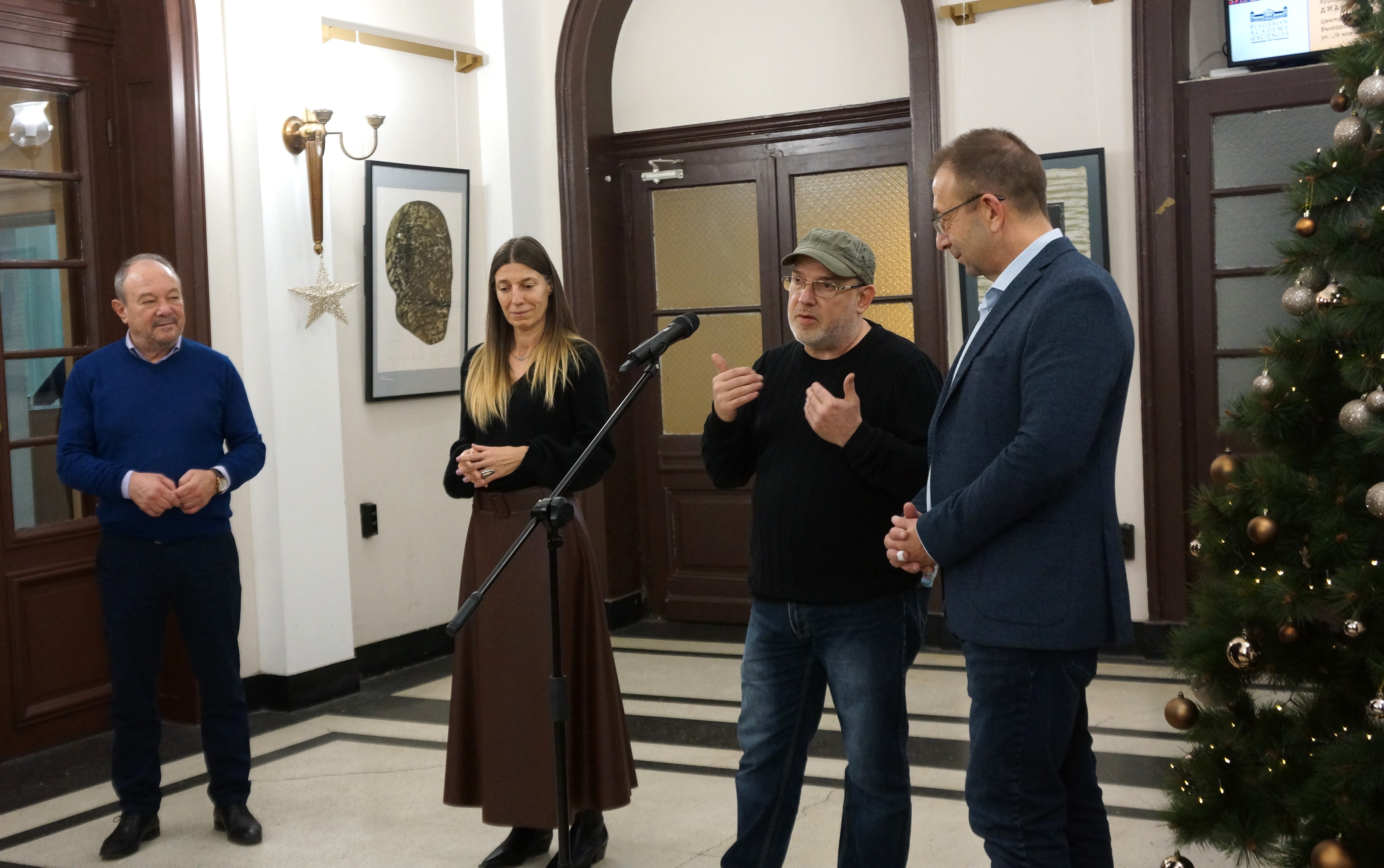On 8 October 2020, the Assembly of Academicians at the Bulgarian Academy of Sciences elected Prof. Maxim Kontsevich, a Russian and French mathematician, born on 25.08.1964 in Khimki, Moscow Region, a foreign member of BAS.
Maxim Kontsevich is a professor at the Institute of Advanced Research (IHES), Paris and a distinguished professor at the University of Miami. He is one of the leading mathematicians and theoretical physicists of the 20th and 21st centuries with outstanding contributions to algebraic geometry, algebraic topology and geometric aspects of mathematical physics, such as knot theory, quantization and mirror symmetry.
Prof. Kontsevich is the author of a number of new ideas and theories with a huge influence on the development of modern mathematics and theoretical physics: Deformation quantization, Homological mirror symmetry, Donaldson-Thomas invariants and wall-crossing structures, Non-commutative Hodge theory, Periods and motive integration, Gromov-Wheaton theory and others. His main results have been published in over 50 articles in the most prestigious mathematical and physical journals and have been cited more than 12 000 times. Prof. Kontsevich was the supervisor of 12 doctoral students, including the famous mathematicians Sergei Barannikov, Tony Yu, Fabian Haiden and Alexandr Usnich and over 30 postdoctoral students, including the young Bulgarian mathematicians Penka Georgieva and Georgi Dimitrov.
Prof. Kontsevich’s works are highly appreciated by the world mathematical community. At the World Congress of Mathematicians in Berlin in 1998, he was awarded the Fields Medal for solving four major geometric problems, which gave a strong impetus to the development of a number of important fields in mathematics and mathematical physics. This is the highest mathematical distinction, which is often compared to the Nobel Prize in other sciences. Prof. Kontsevich has won many other prestigious awards: EMS Prize (1992), Otto Hahn Medal (1992), Henri Poincaré Prize (1997), Prize of the International Congress of Mathematical Physics (1997), Chevallier de Legion d’Honneur (2004), Crafoord Prize (2008), Shaw Prize (2012), Fundamental Physics Prize (2012), Breakthrough Prize in Mathematics (2014) and others. He is a member of the French Academy of Sciences (2002), a foreign member of the National Academy of Sciences, USA (2015), Dr. Honoris Causa of the Universities of Aarhus (2014) and Vienna (2015), and an honorary member of the London Mathematical Society (2016).
Prof. Kontsevich’s collaboration with Bulgarian mathematicians and physicists dates back to his student years at Moscow State University. It continues to this day in joint research and publications with the Bulgarian mathematicians Tony Pantev and Lyudmil Katsarkov, and as a scientific supervisor of Penka Georgieva and Georgi Dimitrov. They are all frequent guests at the Institute for Advanced Study (IHES), Paris. The long-term scientific contacts of Prof. Kontsevich with the famous Bulgarian physicist Acad. Ivan Todorov should also be noted.
Prof. Kontsevich was a plenary speaker in the first edition of the international conference “Mathematics Days in Sofia” in 2014, which contributed greatly to the establishment of this prestigious scientific forum of the Bulgarian mathematical community around the world. He participated very actively in the initial discussions for the establishment of the International Center for Mathematical Sciences at the Institute of Mathematics and Informatics-BAS (ISMS) with Acad. Sendov, Acad. Revalski, Acad. Todorov, Prof. Tschinkel and Prof. Katsarkov. Prof. Kontsevich is a member of the Management Board of ISMS and invited speaker at the International Conference “Complex Geometry”, 15-18 July 2020, Sofia, which is a satellite conference of the 8th European Congress of Mathematics, 5-11 July 2020, Portorož and inaugural conference of ISMS. His world fame and reputation as an exceptional scientist make him an irreplaceable ambassador of Bulgarian science and the Bulgarian scientific community in the world’s most prestigious scientific forums and research centers.


